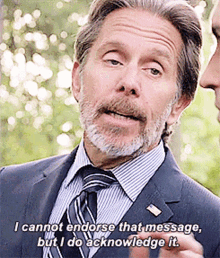The Myth of "Retweets ≠ Endorsements" – Protecting Your Brand in a Digital World
The Myth of "Retweets ≠ Endorsements" – Protecting Your Brand in a Digital World

Retweets ≠ equal endorsements.
It’s something you see on most high-profile X accounts.
Let me tell you why this statement is—for lack of a better term—total bullsh*t.
Retweeting, reposting, and resharing content has an impact far beyond mere engagement metrics. Whether we like it or not, every piece of content you share adds to your digital footprint and reflects your personal or business brand.
Let’s zero in on the type of content we’re talking about.
We share what makes us feel. How many times have you seen a meme that literally makes you LOL and the first impulse is to like, share, repost IMMEDIATELY.
As a former journalist, I used to see this impulse play out with news headlines. It goes something like this:
-you read the headline.
-The headline triggers an emotional response—anger, curiosity, happiness, hope.
-You share the headline
Sometimes you skim the body of the story. Sometimes you don’t even look beyond the headline. Reading the body of the story is… optional.
Sound familiar?
Here’s an example of this habit spiraling out of control.
Remember this photo?

During Hurricane Sandy in 2012, a viral image purportedly showed a shark swimming through a flooded New Jersey street. The image quickly spread across social media, sparking curiosity and concern. It was later debunked as a digitally manipulated photo, with the shark image traced back to earlier incidents of similar hoaxes during natural disasters. The journalist who worked on the fact check said a challenge he faced was he “kept hitting the barrier of people saying, vaguely, that [the shark photo] was ‘from Facebook.’”
Here’s the challenge: the majority of people don’t fact-check before resharing. In fact, a survey from Security.org shows “among adults who share political or news posts on social media, less than half make sure to check facts before reposting, and about one out of six ‘rarely’ or ‘never’ verify information before sharing it.”
Being a journalist showed me the power of information—truthful and otherwise. For businesses and individuals alike, aligning with reputable content is crucial. Supporting misinformation, even unintentionally, can chip away at credibility, trustworthiness, and influence.
So, what can you do to prevent misinformation from tarnishing your brand? Here are three simple ways to fact-check content before hitting “share”:
- Look at the Source: If the original post comes from an unfamiliar or sensationalist source, pause. A quick Google search (or reverse image search for photos!) about the source can reveal whether it’s credible.
- Check for Recent Coverage: Search for recent, credible news stories on the topic. Trusted outlets typically cover breaking news, and you’ll be able to compare details to ensure accuracy. Checking against 3-5 sources from across the news spectrum should due.
- Use Fact-Checking Websites: Sites like Snopes, FactCheck.org, and PolitiFact can help verify claims, especially trending topics that tend to spread fast.
We have a saying in journalism – Nobody reads the retraction. The internet is wild place where “take backs” are rare. For better or for worse, resharing content is ABSOLUTELY an endorsement.
Virality is what makes or breaks brands, both personal and professional. If you want to go viral for the right reasons and amplify your story with authenticity and accuracy, book a free consultation with us at Scout Stories.
This election season, and always, let’s be diligent. By taking these small steps, we can ensure our voices contribute meaningfully to the conversation, protecting both our personal brands and the integrity of information.
